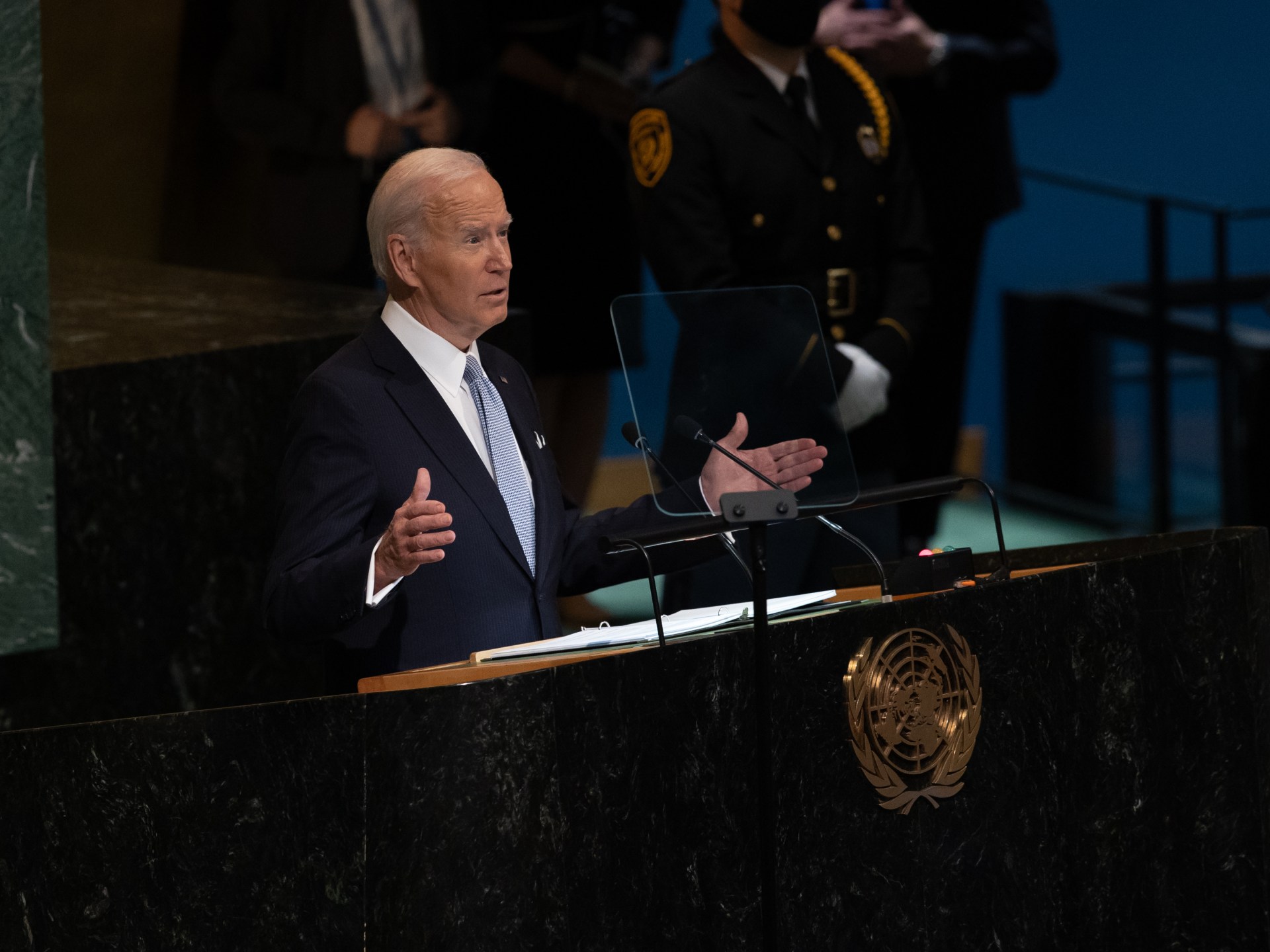US President Joe Biden accused Russia on Wednesday of violating basic principles of the United Nations Charter by invading Ukraine, and said Moscow was making "irresponsible" threats to use nuclear weapons.
Addressing the United Nations General Assembly in New York, Biden criticized his Russian counterpart, Vladimir Putin, for launching an unprovoked war that prompted some 40 UN members to help Ukraine in the fight with funding and weapons.
"The permanent member of the United Nations Security Council who invaded his neighbor and tried to wipe a sovereign country off the map is how Russia brazenly violated the basic principles of the United Nations Charter," Biden added.
In his speech, the US President called for an end to this war "in a just and acceptable manner, and it is not possible to control the territory of a country by force."
Biden noted that no one threatened Russia despite its claim to the contrary and that no one but Russia sought conflict, vowing to continue the United States in solidarity with Ukraine.
He stressed that "no side can win a nuclear war and should never be fought," expressing the United States' readiness to negotiate arms control measures.
Biden confirmed his support for the inclusion of new members of the Security Council (Reuters)
Iran and China
On the Iranian file, Biden pledged that his country would not allow Tehran to acquire nuclear weapons, and stressed that Washington was ready to mutually return to the nuclear agreement if Iran fulfilled its obligations.
He also stressed that the American people stand by the protesters in Iran who are demonstrating following the death of a young woman who was arrested by the morality police.
"We stand with the brave people of Iran and the brave Iranian women, who are demonstrating today in defense of their most basic rights," he said.
In the relationship with China, Biden stressed that Washington "does not seek conflict" with Beijing despite the tension between the two economic giants, especially over Taiwan.
"Let me be frank about the rivalry between the United States and China," he said, adding that the United States does not seek conflict and does not want a cold war with China.
The Palestinian-Israeli conflict had its luck in the speech of the US president, who affirmed that his country will continue to work for a peace based on the two-state solution.
In his speech, the US president declared that he "supports" an increase in the number of "permanent and non-permanent" member states of this main body of the United Nations, to allow countries from Africa, Latin America and the Caribbean to be represented.

